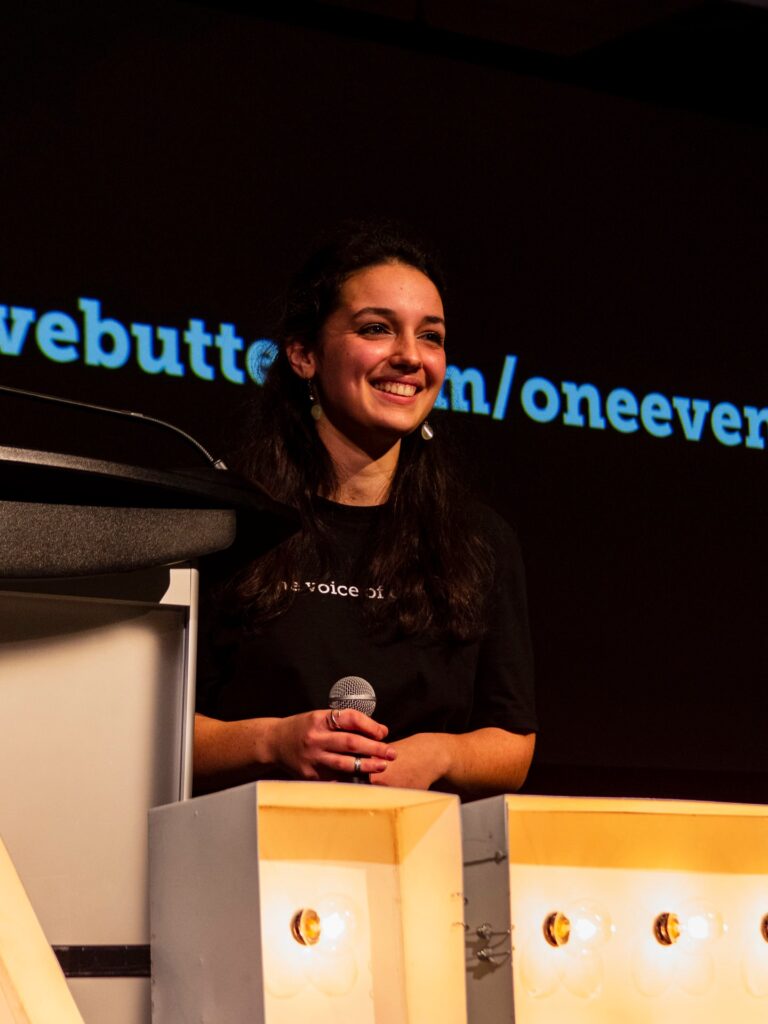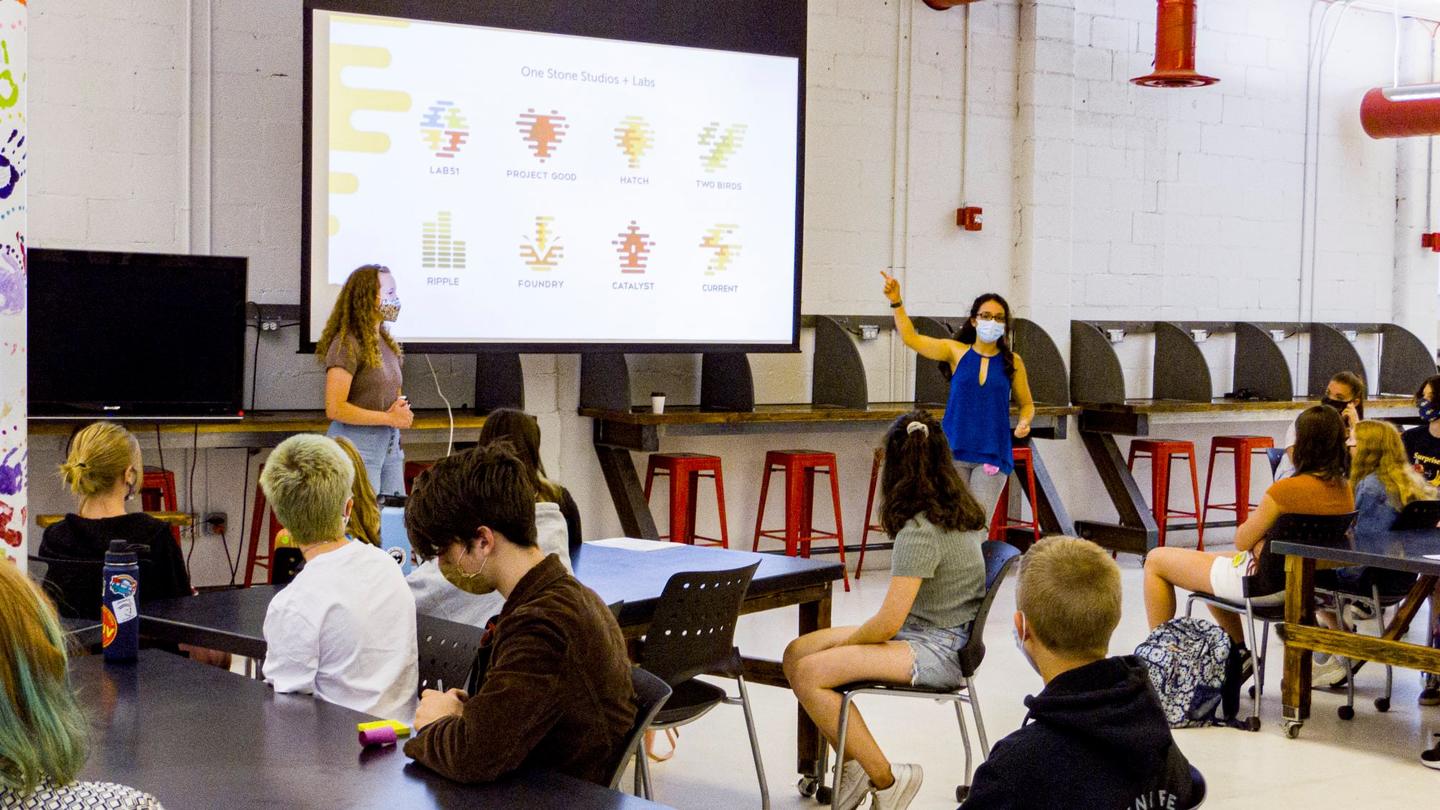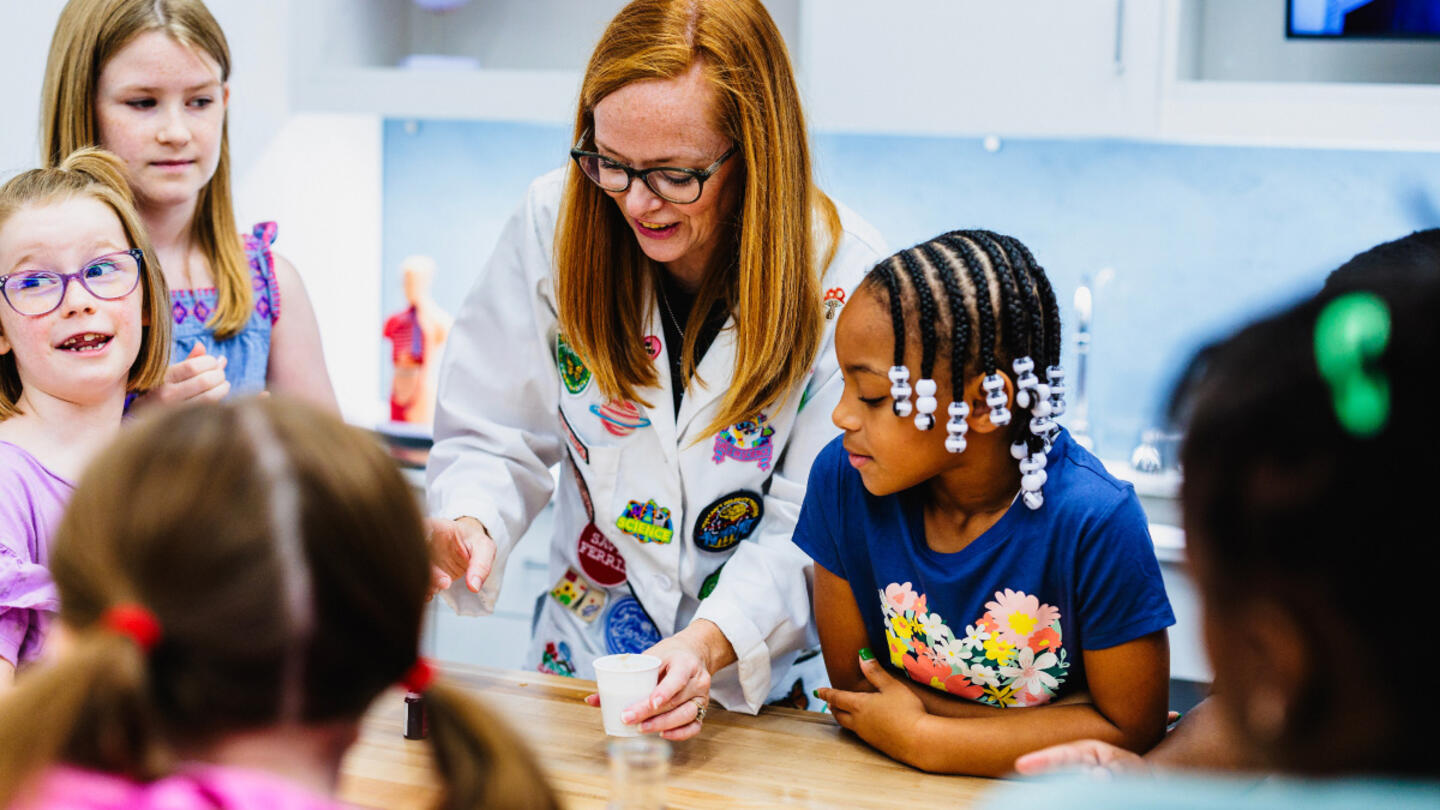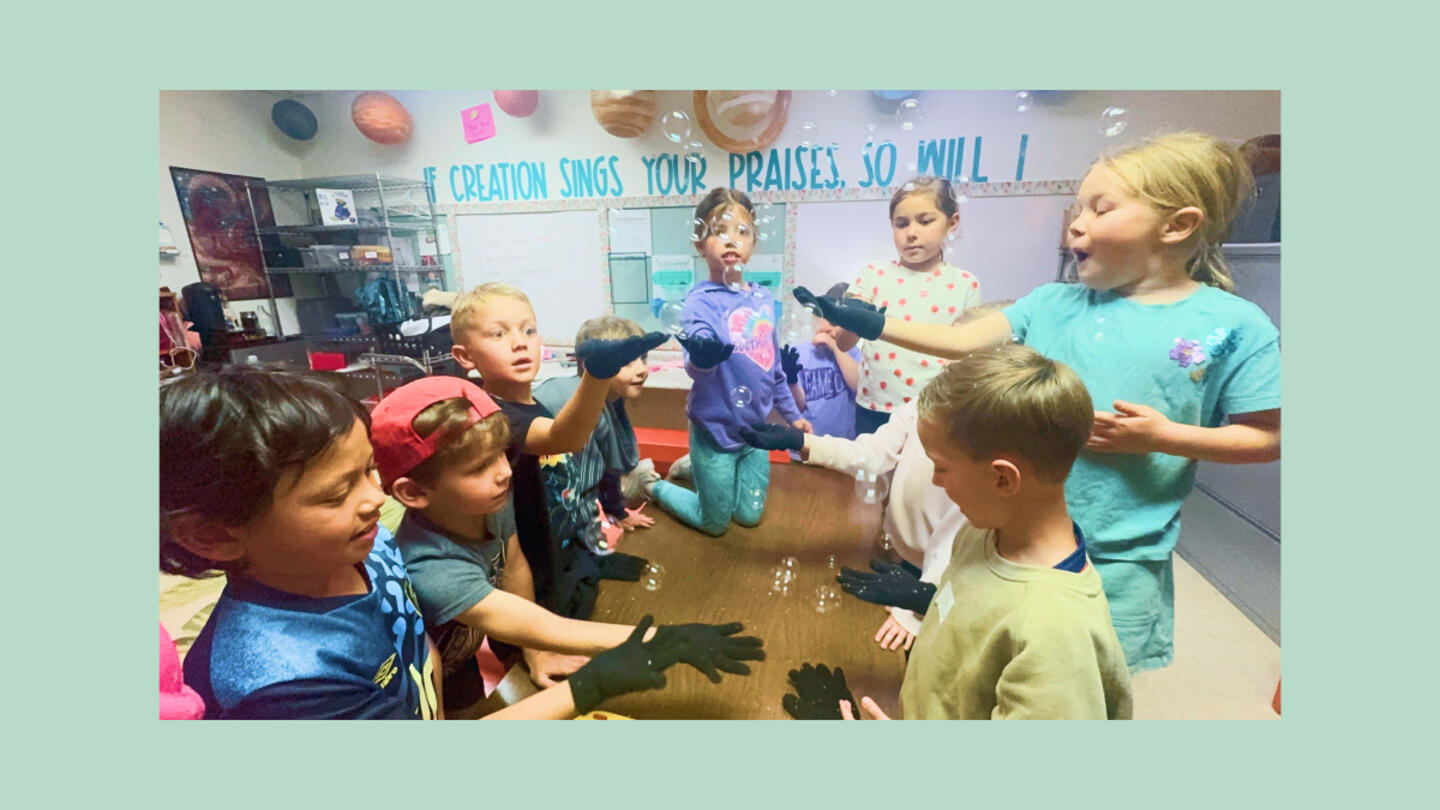Mackenzie Link is a former chairman of the board of One Stone – the nonprofit that runs her own school. This is fitting for One Stone, a school in Boise, Idaho where student-directed learning is the name of the game.
For Link, One Stone has been able to fill a need that other educational models couldn't: She "wanted responsibility," she says. She "wanted to be taken seriously." And that's exactly what One Stone offers.
Up until age 14, Mackenzie was homeschooled. She found that adults and peers who heard this just assumed she was less educated and capable than others her age. At the same time, she discovered that the experiences she gained volunteering with her mom were her most fulfilling.
She wanted an educational experience that could incorporate real-world experiences like the ones she had volunteering along with her academics. When a family friend recommended she explore One Stone, nonprofit that emphasized student-directed, project-based learning, the fit seemed natural.
"Something I didn't have when I showed up to One Stone was self-advocacy," Mackenzie says. "Now I'm like, 'I can do this myself, I can handle it myself. I don't need anybody else to support me.' And that's definitely a big thing that I've learned."
Student-led education equips students for real life
Traditional educational systems tend to be one-size-fits all. Because of that, students aren't given the ability to develop autonomy and independence, or explore their unique interests and strengths. This leaves them ill-prepared for life outside of school, and diminishes their confidence, happiness, and sense of individuality overall.
The Purpose of Education Index by the think tank Populace is a first-of-its-kind study, conducted in September 2022, gauging the American public's opinions on educational priorities. The research found that "being prepared to enroll in a college or university" was only number 47 out of 57 in participants' rankings of their goals for education.
Instead, people said they prioritized using education to develop practical skills such as "managing personal finances, preparing meals, and making appointments". Above all, they hoped that education would result in students developing a strong sense of character, primarily "honesty, kindness, integrity, and ethics."
One Stone is a school built on this foundational philosophy. Mackenzie's education emphasized real-life experience, not just theory written on a chalkboard.
In her first year at One Stone, she participated in XLab (short for "Exploration" or "Experience" Lab), which focused on design thinking-based projects.

Her second year continued to develop this skill, but further expanded it by combining it with collaboration and thinking about how to benefit the wider community. Groups of students worked together to plan projects that engaged with organizations in nearby towns, including through internships and job shadowing. Through this, Mackenzie and her peers were able to develop skills necessary for success that aren't found in the traditional classroom.
"That's something I've totally gotten, learning 'How do you communicate with professionals? How do you represent yourself in a positive way?" Mackenzie says. "That's really hard, for 14-year-old Mackenzie or 14-year-old anybody. To go into a situation with ease and confidence, being able to communicate, being able to collaborate with everyone."
All students focus on developing their "BLOB" skills: Bold Learning Objectives. While working on design thinking projects, they were encouraged to not only hone their hard skills, but emotional literacy as well.
"That's the greatest way we've learned," Mackenzie says. "Growing empathy, humility, and mindfulness … all of these objectives that make up a person." Throughout her time at One Stone, she has valued "wayfinding work," which she describes as "Passion, purpose, finding not just, 'What do you want to do in the future?' But also, 'Why do you want to do it?'"
Through this, Mackenzie has been empowered to hone her communication skills, collaborative work, problem solving, professional skills, and other abilities that serve real-world situations.
Perhaps the epitome of this came after just one year at One Stone, when she was asked, at age 15, to join One Stone's board of directors (by its own bylaws, One Stone's board must be at least two-thirds students).
"It's absolutely given me clarity of the future and respect for everything," Mackenzie describes. "Now I know how to read an audit. I can read a 990 [tax filing] and look at other nonprofits' tax returns and be like, 'Oh, okay, this is the financial standing.' What a skill!"
Mackenzie has served on the board for three years since, and was elected chairman last year. She recently passed the torch to the next chairman, another fellow student.
"I'm honored to be trusted," she says. "We're not student directors, or something like that. We're all voting directors. We're entrusted with the future of the organization."
'Failure' is reimagined with self-directed learning
While at other schools not knowing the answer would equate to failure, moments of confusion and hesitation at One Stone are different.
"At One Stone, you're encouraged to explore," Link says. "If you fail or if you're like, 'I actually didn't like that,' that's great. We love that."
One of her big learning curves was taking on more humility, and recognizing that "you have things to learn and you have things to learn from others."
The very nature of One Stone's curriculum encouraged constant evaluation and course-correction. Mackenzie participated in this, and learned that through making the wrong decision often came significant growth.
"We have to ask ourselves if we're not changing, are we innovating?" Mackenzie says. "Sometimes we'll do something one term and we're like, 'Oh, that did not work at all. Let's try something else.'"
The pinnacle of this was her 'Why' Project, completed during her final year at One Stone. An independent design-thinking project, "Why" Projects are a culmination of students' years of experimenting in collaborative, community-based lab settings. Graduating students undertake completely self-guided and self-designed projects geared at answering, in Mackenzie's words, "What your why is and what your purpose is."
For these projects, the final product isn't nearly as valuable as the process of undertaking independent research in real-world communities, which means grappling with mistakes, self-doubt, questions, and confusion on one's own. Mackenzie's project explored post-retirement elderly care for seniors in her community, using human-centered design.
This required "insane amounts of empathy," she describes. "I talked to dozens of people … When we have interviews, what we're trying to gain from that is empathy and empathy experiences. So I was talking with caretakers. I was talking with attorneys and social workers and the executive director of the senior center… I had a really incredible experience with the people that I talked to."
The future of the project-based learning model of One Stone
Link doesn't know what lies ahead. And instead of frightening, that's exciting.
"I've always had the 'why,' to be of service to help other people, to help people be free of pain," she says. "The 'what' of how I do it? I'm still unsure. I've always been unsure, but before that came with a lot of fear. And now there's a lot of excitement."
Keeping with One Stone's traditions, she's exploring and testing out a variety of opportunities, including project management, construction, health care, nonprofit work, and law. She is taking classes at the community college and planning to work at the local hospital and a local office "to see if that's the path for me. I'm just going to explore."
Her work on the One Stone board in particular has allowed her to experience the nonprofit world: "I'll go into life with a different level of understanding and appreciation for the nonprofit world, just the business world as a whole."
Overall, she's still figuring it out.
"I don't know what's next," she says. "That's exciting."
One Stone is supported by Stand Together Trust, which provides funding and strategic capabilities to innovators, scholars, and social entrepreneurs to develop new and better ways to tackle America's biggest problems.
Learn more about Stand Together's education reform efforts.



